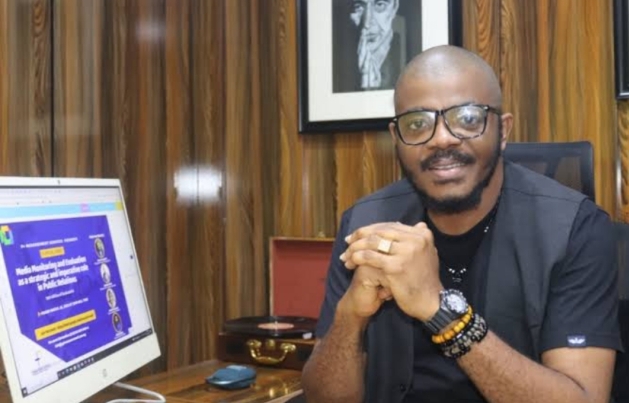Philip Odiakose I Tuesday, Feb. 20, 2024
LAGOS, Nigeria – In today’s media landscape, the ability to monitor and analyze media coverage is crucial for brands seeking to stay ahead of the competition and maintain their reputation.
However, the sheer volume and diversity of media sources, coupled with the ever-evolving nature of communication channels, present significant challenges for effective media monitoring.
As the Chief Media Analyst at P+ Measurement Services, a leading Media Monitoring and Intelligence consultancy, I have firsthand experience in navigating these complexities. In this article, I will share key strategies for successfully gathering brand media intelligence amidst the intricacies of modern media environments.
1. Define Clear Objectives: Before diving into media monitoring, it is essential to establish clear objectives aligned with your brand’s goals. Whether it is tracking brand mentions, monitoring competitor activities, or assessing public sentiment, defining specific objectives will guide your monitoring efforts and ensure relevance and effectiveness.
2. Select Relevant Media Sources: Identifying the most relevant media sources for your brand is paramount. This includes traditional outlets such as newspapers, magazines, out-of-home, and television, as well as digital platforms like social media, blogs, forums, and online news sites. Understanding where your target audience consumes information will help prioritize monitoring efforts and capture meaningful insights.
3. Harness the Power of Technology: In today’s digital age, manual media monitoring is no longer sufficient. Leveraging advanced technologies, such as AI-powered media monitoring tools, can significantly enhance efficiency and accuracy. These tools can automate data collection, filter out irrelevant content, and provide deeper insights into media coverage, enabling you to focus on strategic analysis and decision-making.
4. Monitor Across Channels and Languages: With the globalization of media, brands must monitor coverage across multiple channels and languages to capture a comprehensive view of their reputation and market presence. This requires a multi-faceted approach that considers regional nuances, cultural differences, and linguistic variations. Partnering with a media monitoring provider with global reach and language capabilities can facilitate this process and ensure thorough coverage.
5. Stay Agile and Adaptive: Media landscapes are dynamic and constantly evolving, requiring brands to remain agile and adaptive in their monitoring strategies. Regularly review and refine your monitoring parameters, adapt to emerging trends and technologies, and be prepared to pivot quickly in response to changing circumstances. This agility will enable you to stay ahead of the curve and proactively manage your brand’s reputation.
6. Integrate Data Analysis and Actionable Insights: Gathering data is only the first step; the real value lies in the analysis and interpretation of that data. Translate raw media data into actionable insights that inform strategic decision-making and drive positive outcomes for your brand. Whether it is identifying emerging trends, addressing potential crises, or optimizing communication strategies, effective data analysis is the cornerstone of successful brand media intelligence gathering.
7. Embrace Continuous Learning and Improvement: Media monitoring is a dynamic field that requires continuous learning and adaptation. Stay abreast of industry trends, best practices, and emerging technologies through ongoing training, networking, and collaboration with industry peers. By embracing a culture of continuous improvement, you can ensure that your media monitoring efforts remain effective and relevant.
In conclusion, navigating the complexities of media monitoring requires a strategic and holistic approach that encompasses clear objectives, relevant media sources, advanced technologies, cultural sensitivity, agility, actionable insights, and a commitment to continuous learning. By adopting these strategies and leveraging the expertise of a reputable media monitoring partner like P+ Measurement Services, brands can gather meaningful intelligence, protect their reputation, and drive success in today’s competitive marketplace.
NB: Philip Odiakose is the Chief Media Analyst and Managing Consultant at P+ Measurement Services and TMKG Consulting, members of the Media Monitoring and Audit Group (MMAG).
